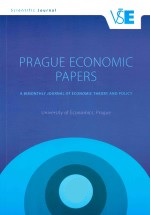Work Flexibility in Developed Countries: Economic Context and Policy Implications
Work Flexibility in Developed Countries: Economic Context and Policy Implications
Author(s): Peter Pisár, Ján Huňady, Erika ĽapinováSubject(s): Social Sciences, Economy
Published by: Vysoká škola ekonomická v Praze
Keywords: work flexibility; part-time work; temporary work; comparative analysis; economic policy context; cluster analysis;panel data;
Summary/Abstract: The work flexibility is considered as an integral part of the modernization of the labour market and also as an effective solution of the current problems at the labour market. The paper is therefore focussed on this problem in terms of the working time organization, as well as selected forms of employment in developed countries. We pay an attention to theoretical issues and practical application of work flexibility. Appling the methods of spatial comparison and cluster analysis, we identify the key differences and similarities in labour flexibility among selected countries. There are rather significant differences between groups of countries. The results of panel data regression largely indicate that higher flexibility on the labour market could have positive impact on the reduction of unemployment in the future, especially when taking into account the two years lag.
Journal: Prague Economic Papers
- Issue Year: 27/2018
- Issue No: 6
- Page Range: 684-703
- Page Count: 20
- Language: English

